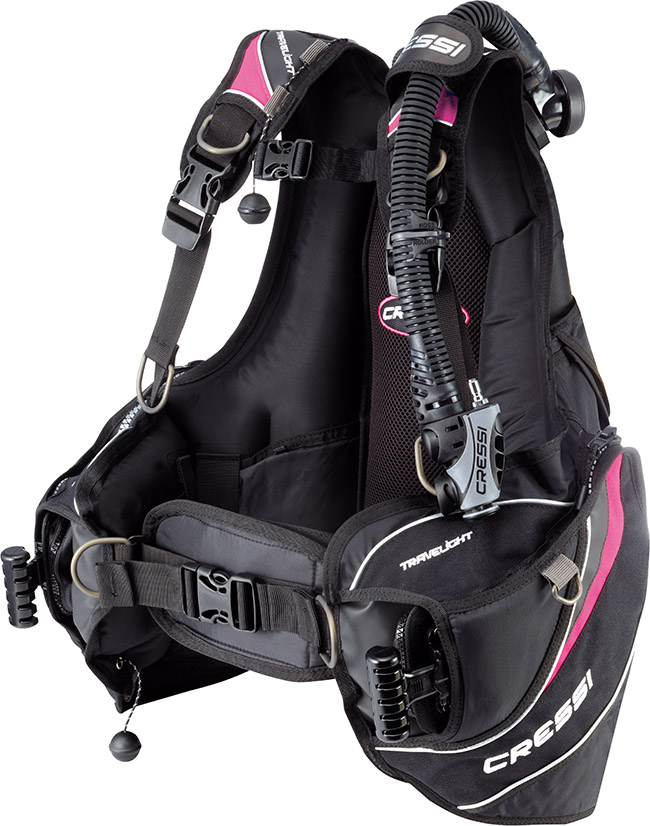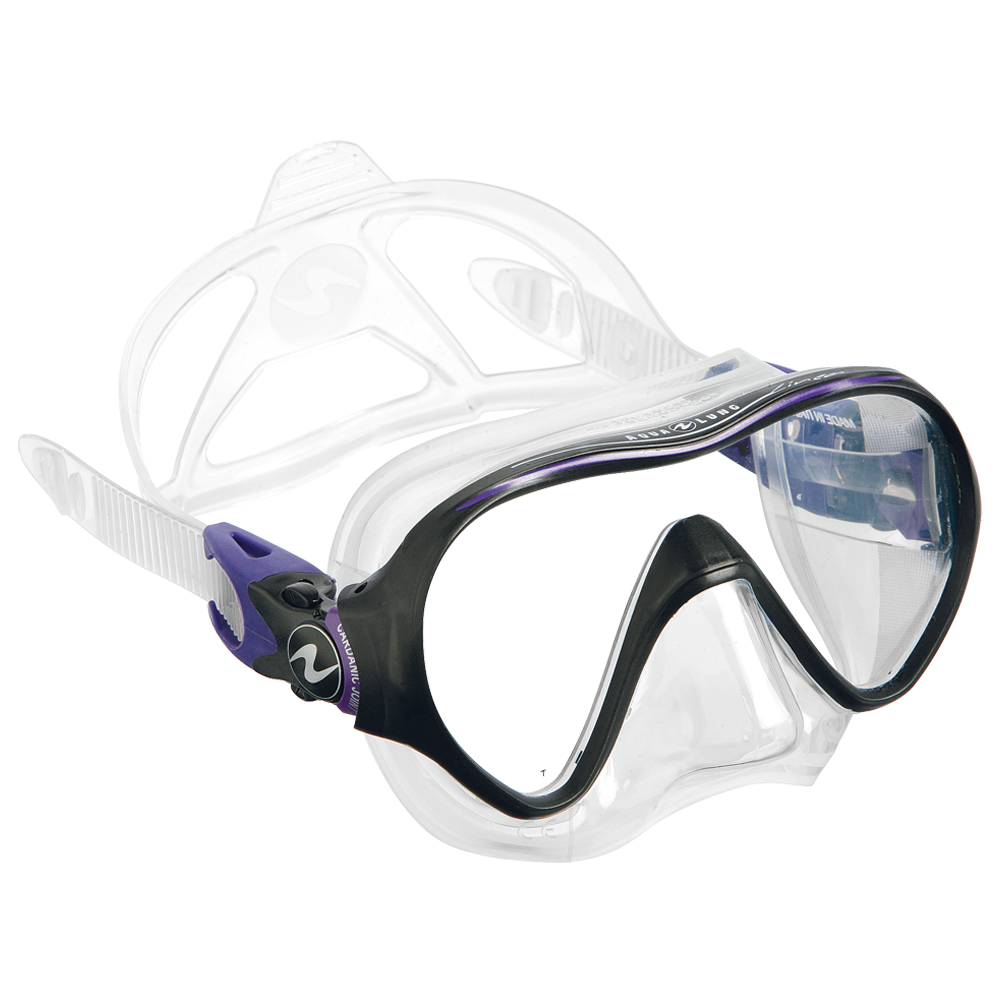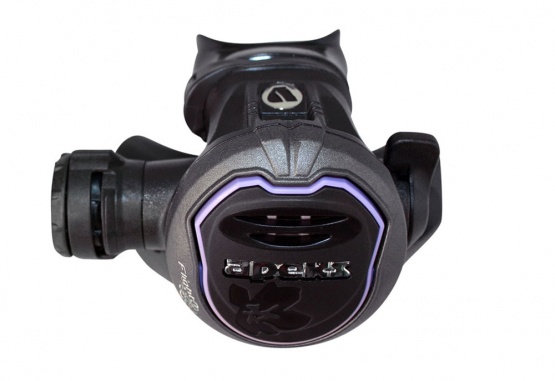Although it may seem obvious now that differently shaped bodies require different equipment, for many years, women had to put up with ill-fitting BCDs and wetsuits if they wanted to dive. Nowadays, many manufacturers produce female-specific gear, from masks and fins to regulators. After way too many dives with rented gear, here are a few recommendations for today’s best dive equipment for women.
BCD
Let’s start with the most important piece of gender-specific gear — the BCD. BCs have come a long way since they were first invented in terms of comfort, safety and utility. Over the last few years, manufacturers have paid heed particularly to making them more comfortable for women. No longer must we put up with a badly fitting men’s x-small, unbalanced weight pockets (due to our larger hips), or a BC riding up around our ears because it’s cut for a straight up-and-down body shape. Plenty of modern women’s BCDs have been designed specifically for us.
Cressi Travel Light Lady
We love this Cressi BC, as it’s not only designed for the female body, it’s also designed for the woman who travels. The extra-small weighs just 5 pounds (2.3 kg), and underwater, the jacket fits snugly and stays where it’s supposed to. The integrated weights pop in and out easily (but not too easily when you’re underwater) and the chest strap is in a comfortable spot above your chest. All-in-all this light, travel-friendly BC is a winner.
Wetsuit
Let’s not be shy here: our chests can make getting into and out of a wetsuit far more frustrating. A zip-front helps eliminate that problem. Here are a few suits we’ve tried and tested and can’t get enough of.
Full-length
ScubaPro Pyroflex
Built from 100 percent neoprene, the Scubapro Pyroflex 1.5 mm Steamer features an inner layer made from high-tech plush and fleece. The suit is lightweight, quite durable, and, most importantly, it’s an efficient insulator for better heat retention, both underwater and at the surface. This zip-front wetsuit is available for both men and women, with five women’s sizes ranging from XS to XL.
Shorty
Cressi Playa
The one-piece shorty Cressi Playa is made from 2.5 mm double-lined neoprene. As well as having a zip front, its arms and legs have an elastic neoprene braided seal to minimize water infiltration. It’s easy to get on and off, is reasonably priced and is a must for a warm-water lover.
Mask
It can be annoying when a mask gets tangled in your hair and you spend what seems like hours trying to careful unravel it from the straps. The industry has been paying attention to our woes and has delivered a solution for those of us with long hair.
Aqua Lung Linea
The “Comfort Buckle System” on the Aqua Lung Linea aims to solve the problem of hair tangling in your mask when you take it off, making removal pain-free. The small frame is also ideal for freedivers or any diver who wants to reduce in-water drag.
Regulators
The gear industry now offers regulators specifically designed for women, featuring brighter colors. The regs generally have a smaller, lighter first stage and second stage to help reduce jaw fatigue as well.
Apex Flight
Claiming to be “the lightest regulator in the world” the Apeks Flight is compact and durable, weighing in at 1.5 pounds for a yoke, including the hose. Ideal for traveling divers, this reliable and robust reg is designed for waters warmer than 50 F (10 C).
You can also buy inexpensive hose covers in most dive shops, so if you really want all-pink everything — or any color under the rainbow — you can make it happen.
Fins
Properly fitting fins are another essential part of any gear kit. Fins that are too small can rub and cause irritation, and fins too big can slip off or cause cramps. With women’s (generally) smaller and thinner feet in mind, here are some styles to consider.
Open-foot fins
The biggest advantage of open-foot fins is that you can wear booties with them. Divers wear booties for insulation in colder water and to protect their feet if they’re walking over rocky shores. Although you needn’t wear booties in warmer water, open-foot fins and booties are perfectly acceptable there too, making this a versatile combination.
ScubaPro Seawing Nova
One of today’s most popular fins is the ScubaPro Seawing Nova. It’s hard to go on a dive without seeing a pair of these brightly-colored fins in front of you. The Nova features the maneuverability of a blade fin but with the kicking comfort and efficiency of a split fin, as well as a proprietary hinge that ScubaPro says “enables the entire wing-shaped blade to pivot and generate thrust.”
Closed-foot fins
One of the most obvious benefits of closed-foot fins is the price. The fins themselves are cheaper, and you needn’t buy booties either, which saves you even more. They also weigh less, and less weight at the end of your foot means you don’t have to work as hard to move it. You’ll also save space and weight in your luggage. Closed-foot fins, however, don’t provide as much power for kicking in current, and are not suitable for cooler waters.
Aqua Lung Wind
The Aqua Lung Wind is a new entry-level full-pocket fin, ideal for diving in warm, easy conditions and snorkeling. Even though it is compact and lightweight, the Wind is still robust and comfortable and is perfect for traveling.
By guest author Sarah Richard
Guest author Sarah Richard is a travel writer currently living in Hong Kong. She is a divemaster who has been diving for eight years and has most recently worked on a liveaboard in Micronesia. Follow her adventures on her travel blog or on Facebook.








